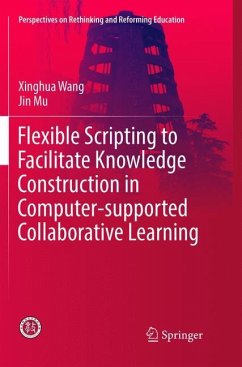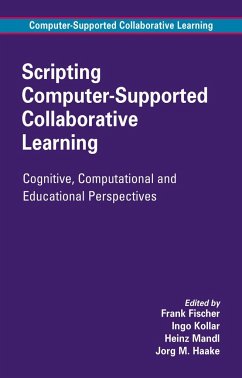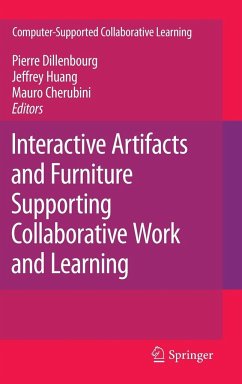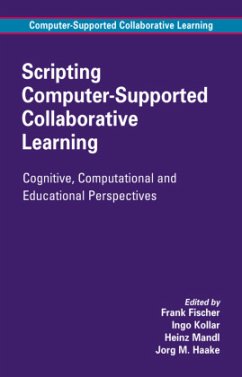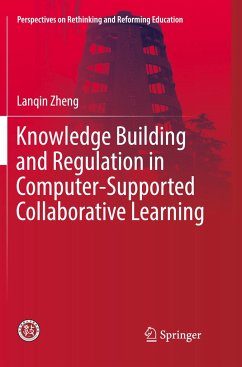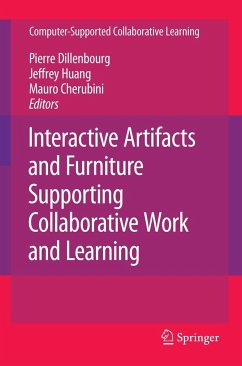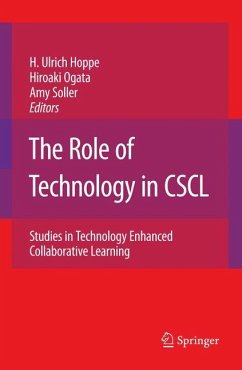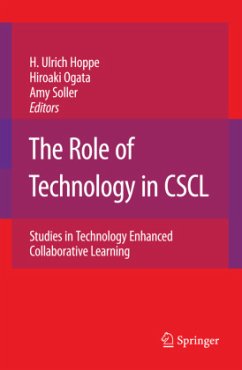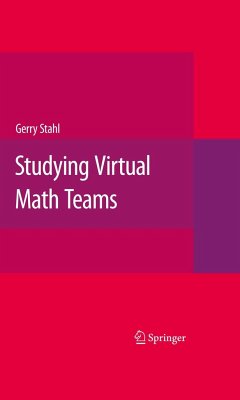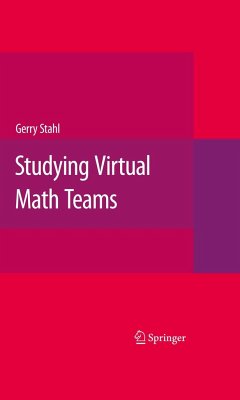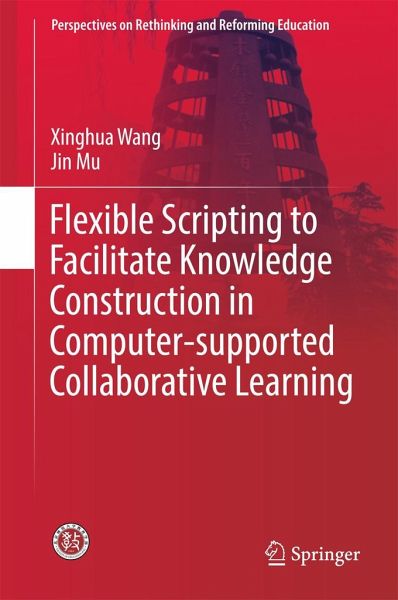
Flexible Scripting to Facilitate Knowledge Construction in Computer-Supported Collaborative Learning
Versandkostenfrei!
Versandfertig in 6-10 Tagen
38,99 €
inkl. MwSt.
Weitere Ausgaben:

PAYBACK Punkte
19 °P sammeln!
This book discusses the significance of flexible scripting to structure CSCL against the framework of "Script theory of guidance" and reports on findings from two empirical studies on the effects of flexible scripting on collaboration in CSCL scenarios.In the first empirical study flexibility was accomplished through adaptivity, and through adaptability in the second. The results of these studies show that adaptive and adaptable scripts enhanced the quality of collaborative knowledge construction processes as well as learners' collaboration skills, compared to inflexible scripts.The findings p...
This book discusses the significance of flexible scripting to structure CSCL against the framework of "Script theory of guidance" and reports on findings from two empirical studies on the effects of flexible scripting on collaboration in CSCL scenarios.
In the first empirical study flexibility was accomplished through adaptivity, and through adaptability in the second. The results of these studies show that adaptive and adaptable scripts enhanced the quality of collaborative knowledge construction processes as well as learners' collaboration skills, compared to inflexible scripts.
The findings presented in this book will contribute to theory building of the scripting approach in CSCL. The authors propose two innovative ways of achieving flexible scripting and address the mechanisms by which adaptive versus adaptable script influences collaborative knowledge construction. Moreover, the adaptive and adaptable scripting approaches provide hands-on examples for practitionersand contribute to their understanding of teaching design in CSCL settings.
In the first empirical study flexibility was accomplished through adaptivity, and through adaptability in the second. The results of these studies show that adaptive and adaptable scripts enhanced the quality of collaborative knowledge construction processes as well as learners' collaboration skills, compared to inflexible scripts.
The findings presented in this book will contribute to theory building of the scripting approach in CSCL. The authors propose two innovative ways of achieving flexible scripting and address the mechanisms by which adaptive versus adaptable script influences collaborative knowledge construction. Moreover, the adaptive and adaptable scripting approaches provide hands-on examples for practitionersand contribute to their understanding of teaching design in CSCL settings.





